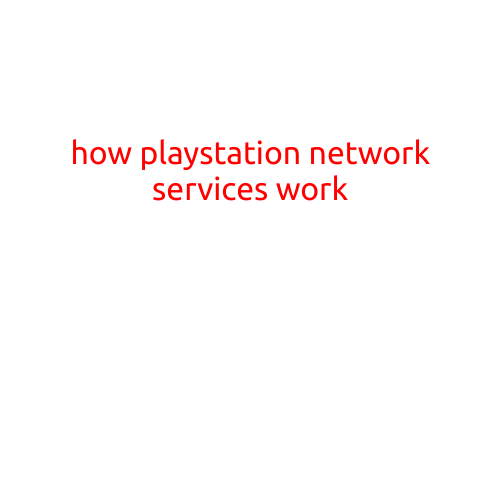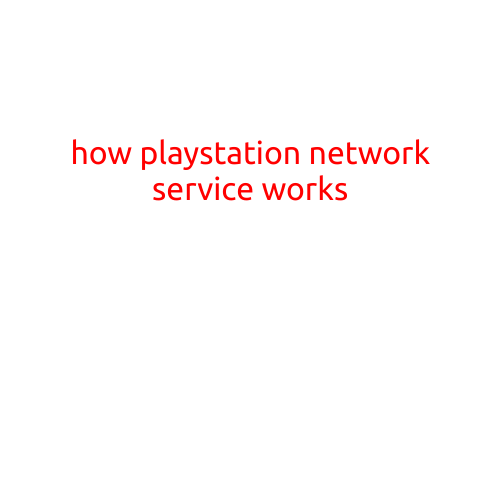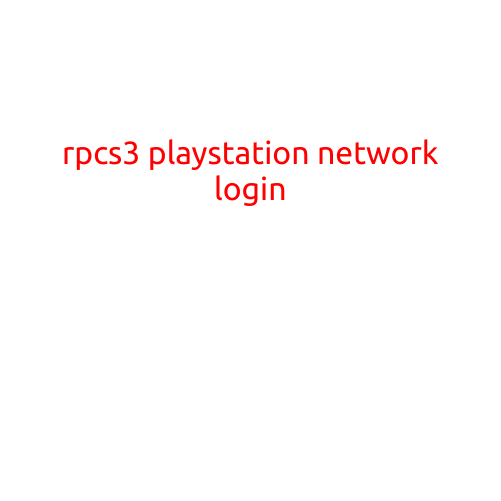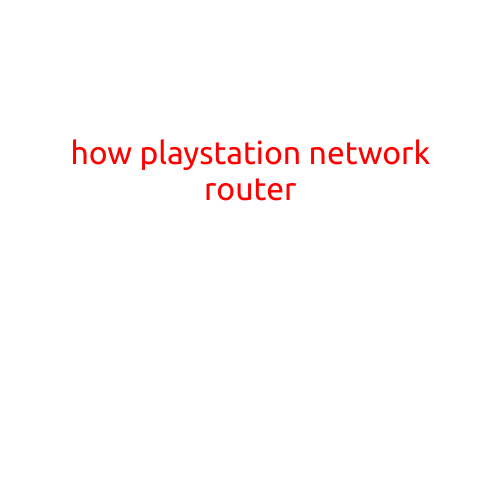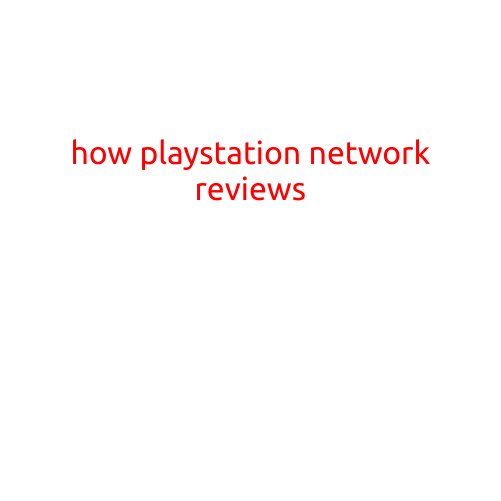
How PlayStation Network (PSN) System Works
The PlayStation Network (PSN) is a vital part of the PlayStation ecosystem, allowing gamers to connect with each other, download games, and access a variety of entertainment content. In this article, we’ll delve into the inner workings of the PSN system, exploring how it functions, its features, and what makes it tick.
Overview of the PSN System
The PSN is a decentralized network that connects PlayStation consoles, such as the PlayStation 4 (PS4), PlayStation 3 (PS3), and PlayStation Vita (PSVita), to the internet. The network is operated by Sony Interactive Entertainment, the company behind the PlayStation brand.
Components of the PSN System
- PlayStation Network (PSN): The PSN is the cloud-based infrastructure that allows PS4, PS3, and PSVita consoles to communicate with each other and access online features.
- PlayStation Console: Each PS4, PS3, and PSVita console is equipped with a unique identifier, known as a User ID (UID), which is linked to the PSN.
- PlayStation Store: The PlayStation Store is an online marketplace where users can purchase and download games, demos, and other content.
- Content Servers: Content servers are distributed globally, hosting a vast library of games, trailers, and other content.
- Login Servers: Login servers handle authentication and authorization for PSN users, verifying their identities and ensuring secure access to online features.
How the PSN System Works
Here’s a step-by-step breakdown of how the PSN system functions:
- User Authentication: When you start your PS4, PS3, or PSVita console, the system prompts you to log in to the PSN using your User ID (UID) and password.
- Authentication with PSN: The PSN servers verify your identity and ensure you’re allowed to access online features. If successful, the system generates a secure authentication token, which is stored locally on your console.
- Content Retrieval: When you purchase or download content from the PlayStation Store, the system retrieves the relevant data from content servers and stores it locally on your console.
- Peer-to-Peer Networking: When you play online multiplayer games, your console connects with other players’ consoles, forming a peer-to-peer network. This allows for real-time communication and data exchange.
- Server-Side Processing: PSN servers handle tasks such as game matchmaking, game state updates, and network traffic management, ensuring a smooth and stable gaming experience.
PSN Features and Benefits
The PSN offers a range of features that enhance the gaming experience:
- Online Multiplayer: Play with friends and other players around the world.
- Account Management: Manage your PSN account, including user profiles, friend lists, and account settings.
- PlayStation Store: Access a vast library of games, demos, and other content for purchase or download.
- Remote Play: Stream PS4 games to your PS Vita or PC.
- Cloud Saves: Store your game saves online, and access them from any PS4 console.
Security and Reliability
The PSN system prioritizes security and reliability to ensure a seamless gaming experience:
- Encryption: Data transmission between the PSN and consoles is encrypted to prevent unauthorized access.
- Firewalls: Inbound and outbound network traffic is filtered to prevent malicious attacks.
- Content Verification: The PSN verifies the integrity and authenticity of game files and updates.
In conclusion, the PlayStation Network (PSN) system is a sophisticated network that enables seamless online gaming, content downloads, and social interaction. By understanding how the PSN functions, gamers can appreciate the complexity and effort that goes into ensuring a stable and enjoyable gaming experience.
